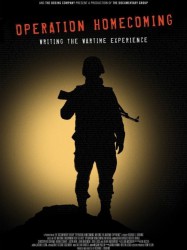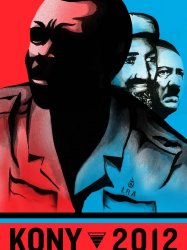The Revolutionary est un film de genre Documentaire avec Jon Voight
The Revolutionary (2011)

Si vous aimez ce film, faites-le savoir !
- Infos
- Casting
- Infos techniques
- Photos
- Vidéos
- Passages TV
- Citations
- Personnages
- Musique
- Récompenses
The Revolutionary is a 1970 political drama film directed by Paul Williams. The screenplay was written by Hans Koning (credited as Hans Koningsberger), based on his novel of the same name. It was the film debut for actor Jeffrey Jones.
Synopsis
The film deals with campus life and protests during the Vietnam War.Acteurs
Commentaires
Postez un commentaire :
Suggestions de films similaires à The Revolutionary
Il y a 202 films ayant les mêmes acteurs, 8957 ayant les mêmes genres cinématographiques, 7796 films qui ont les mêmes thèmes, pour avoir au final 70 suggestions de films similaires.Si vous avez aimé The Revolutionary, vous aimerez sûrement les films similaires suivants :

Spin (1995)
, 56minutesGenres Documentaire
Thèmes La grossesse, Sexualité, Documentaire historique, Documentaire sur une personnalité, Documentaire sur la politique, Documentaire sur la santé, Politique
Acteurs Jon Voight, Larry King
Note78%





 , 1h36
, 1h36Réalisé par Eleanor Coppola, George Hickenlooper
Origine Etats-Unis
Genres Documentaire
Thèmes Film traitant du cinéma, Documentaire sur le monde des affaires, Documentaire sur le cinéma, Politique, Documentaire sur les films
Acteurs Francis Ford Coppola, Marlon Brando, John Milius, Eleanor Coppola, Orson Welles, Sofia Coppola
Note80%





Le documentaire présente le célèbre réalisateur Francis Ford Coppola et son film Apocalypse Now (1979), qui, tourmenté par ce scénario extraordinaire, voit sa vie et sa carrière presque anéanties par les problèmes de tournage, de budget et de casting. C'est un document sur les événements sensationnels qui entourent l'élaboration d'Apocalypse Now et la lutte du réalisateur contre la nature, les gouvernements, les acteurs et le doute de soi. Certaines séquences sonores ont été enregistrées secrètement par Eleanor Coppola, son épouse.
 , 1h21
, 1h21Origine Etats-Unis
Genres Documentaire
Thèmes Le terrorisme, Documentaire sur la guerre, Documentaire historique, Documentaire sur une personnalité, Documentaire sur la santé, Politique
Acteurs Beau Bridges, Blair Underwood, Robert Duvall, Aaron Eckhart, Justin Kirk, John Krasinski
Note71%






¿Quién es el Sr. López? (2006)
, 50minutesRéalisé par Luis Mandoki
Genres Documentaire
Thèmes Politique, Documentaire sur la politique, Politique
Note57%






The List (2012)
, 1h23Réalisé par Beth Murphy
Origine Etats-Unis
Genres Thriller, Documentaire
Thèmes L'immigration, Documentaire sur le droit, Documentaire sur la guerre, Documentaire historique, Documentaire sur une personnalité, Politique
Note70%





The List is a modern-day Oskar Schindler story that focuses on Kirk W. Johnson, a young American fighting to save thousands of Iraqis whose lives are in danger because they worked for the U.S. to help rebuild Iraq. After leading reconstruction teams in Baghdad and Fallujah, Kirk returns home only to discover that many of his former Iraqi colleagues are being killed, kidnapped or forced into exile by radical militias. Frustrated by a stagnating government bureaucracy in the U.S. that has failed to protect its 'Iraqi allies,' Kirk begins compiling a list of their names and helps them find refuge and a new life in America.

La Badil (2012)
, 15minutesRéalisé par Dominic Brown
Genres Documentaire
Thèmes Afrique post-coloniale, Documentaire sur le droit, Documentaire sur une personnalité, Documentaire sur la politique, Politique

Kony 2012 (2012)
, 30minutesRéalisé par Jason Russell
Origine Etats-Unis
Genres Documentaire
Thèmes Afrique post-coloniale, L'enfance, Le terrorisme, Documentaire sur le droit, Documentaire sur la guerre, Documentaire historique, Documentaire sur une personnalité, Documentaire sur la politique, Documentaire sur le terrorisme, Documentaire sur la maltraitance des enfants, Politique, Maltraitance des enfants
Note44%





Kony 2012 est un événement international organisé par le groupe Invisible Children. Le but recherché est de faire connaître mondialement Joseph Kony pour mieux faciliter son arrestation. Joseph Kony est responsable de crimes d'enlèvements d'enfants pour en faire des soldats, de réduction d'enfants à l'esclavage ainsi que l'esclavage sexuel pour les jeunes filles, de nombreux massacres civils, d'exactions et de nombreuses destructions et pillages réalisés par les troupes de chocs. Ce criminel est resté dans le silence pendant une vingtaine d'années à commettre ses crimes sans en payer les conséquences.

Koch Brothers Exposed (2012)
, 1hRéalisé par Robert Greenwald
Origine Etats-Unis
Genres Documentaire
Thèmes Documentaire historique, Documentaire sur la politique, Politique
Note64%





An opening introductory profile on the Koch brothers claims that their inherited wealth was built by their father Fred Koch, a founder of the John Birch Society, by working for Joseph Stalin, and has been used to “wage a systematic attack on American values” and “defining the lives of ordinary American under the radar for over 50 years.”

Koch (2013)
, 1h35Origine Etats-Unis
Genres Documentaire, Historique
Thèmes Documentaire historique, Documentaire sur une personnalité, Documentaire sur la politique, Documentaire sur les villes, Politique
Acteurs Ronald Reagan
Note65%





First-time filmmaker and former Wall Street Journal reporter Neil Barsky’s 2012 documentary film Koch explores the origins, career, and legacy of Edward Irving “Ed” Koch, who served as Mayor of New York City for three consecutive terms from 1978 to 1989. With candid interviews and rare archival footage, the film offers a close look at a man known for being intensely private in spite of his dynamic public persona, and chronicles the tumultuous events which marked his time in office – a fiercely competitive 1977 election, the 1980 transit strike, the burgeoning AIDS epidemic, landmark housing renewal initiatives, and an irreparable municipal corruption scandal. Poignant and often humorous, Koch is a portrait not only of one of New York’s most iconic political figures, but of New York City itself at a time of radical upheaval and transformation.
 , 30minutes
, 30minutesRéalisé par Eduardo Montes-Bradley
Origine Etats-Unis
Genres Biographie, Documentaire
Thèmes Le racisme, Documentaire sur la discrimination, Documentaire sur le droit, Documentaire historique, Documentaire sur la politique, Politique
The film is built around an in-depth interview with Julian Bond, by Eduardo Montes-Bradley at the Sixth & I Synagogue in Washington, D.C., along with the last few lectures that he delivered, as a member of faculty, at the University of Virginia in May 2012. The interviews are bolstered by a barrage of photographs and archival footage taken from different sources. These images help define and illustrate the different historical eras beginning with the American Civil War and running up to the 2008 US presidential election.
 Connexion
Connexion




